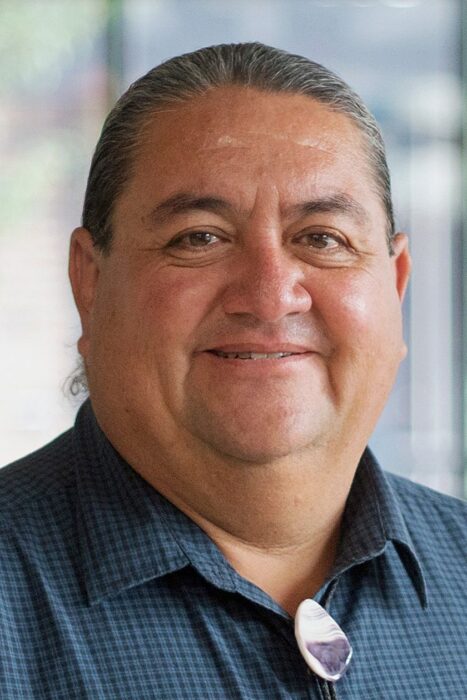
BRANTFORD — Building a better relationship between Canadians and Indigenous people in the future starts with understanding the past, says Darren Thomas.
He’ll be exploring that idea in a free public lecture in Brantford on Wednesday, Jan. 16.
Thomas is a lecturer in the Indigenous Studies program at Laurier Brantford and a Ph.D candidate in community psychology. He is from the Seneca Nation and a member of the Bear Clan. He lives at the Grand River Territory of the Haudenosaunee.
“Efforts to work towards reconciling the past relations between the Crown, Canadians and Indigenous peoples will be a challenging and cumbersome journey,” says Thomas.
Many Canadians wonder why Indigenous people can’t find a rightful place in today’s society and “just move beyond the past” says Thomas. “The reason is that the impacts of colonial trauma still control many lives of Indigenous people.”
His interactive talk, entitled Seven Generations, will challenge and empower the audience and encourage a commitment to strengthen relationships so all people can enjoy a safe, fair and justice society for generations to come.
The lecture will take place on Wednesday, Jan. 16 at 7 p.m. in Room RCE 004 in the Research and Academic Centre of Laurier Brantford at 150 Dalhousie St.
The lecture is sponsored by the Friends and Neighbours Group, a grassroots committee of volunteers supporting the Woodland Cultural Centre’s Save The Evidence Campaign. This is the fourth lecture in the 2018-19 series, presented in association with Laurier Brantford.
The goal of the lecture series, entitled Revealing The Truth, is to educate people and promote a community dialog about the former Mohawk Institute Indian Residential School and reconciliation. The Mohawk Institute, on Mohawk Street in Brantford, operated as a residential school from 1828 until its closure in 1970.
Two more lectures round out the 2018-19 series. On February 20 Paula Whitlow, executive director of the Woodland Cultural Centre, and archeologist Sara Clarke will talk about the artifacts found in and around the Mohawk Institute building and the stories they tell of life in a residential school.
On March 20, Rick Hill, senior interpretive specialist at the Woodland Cultural Centre will explore stories collected from historic documents and recent survivor interviews that reveal the true story of the Mohawk Institute.
Save the Evidence is a capital campaign to raise awareness and support for the repair and renovation of the Mohawk Institute building. Its goal is to ensure the physical evidence of the dark history of residential schools in Canada is never forgotten.
After its closure in 1970, the former Mohawk Institute reopened as the Woodland Cultural Centre, which operates as a museum, gallery, and cultural hub for indigenous history, language, education, art, and contemporary culture. The Save the Evidence campaign has received support from Six Nations Elected Council, the City of Brantford and the Province of Ontario, as well as from individuals and organizations.






